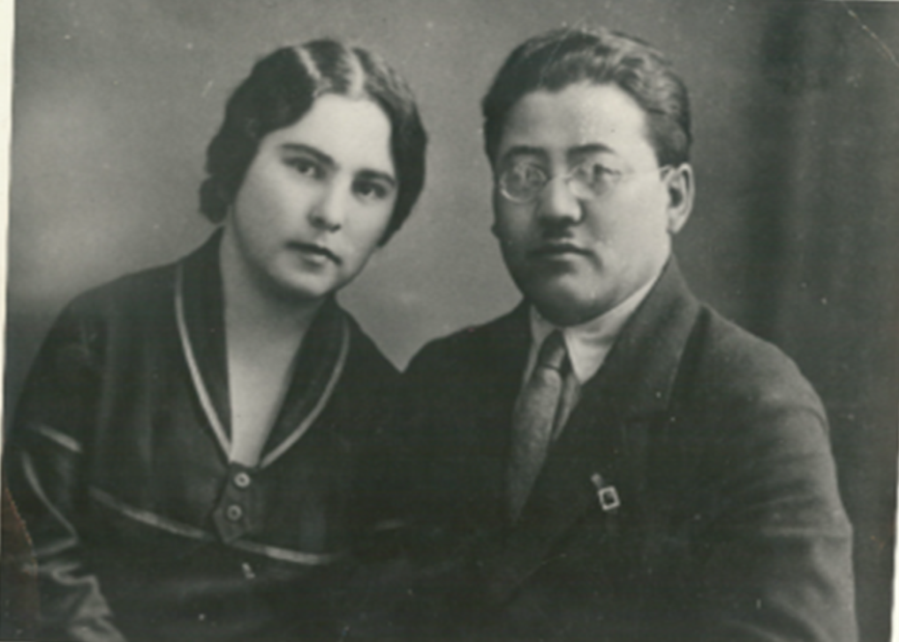ASTANA – Kazakhstan marked the 130th anniversary of Turar Ryskulov, a prominent statesman, scholar and diplomat on Dec.26. Renowned for his unwavering advocacy for the unity of Turkic peoples, Ryskulov envisioned the creation of a Unified Turkistan, championing their shared heritage and collective aspirations.

Turar Ryskulov. Photo credit: bolashaq.edu.kz.
As a visionary thinker, Ryskulov tirelessly addressed critical issues of political rights, freedoms, and equality for the indigenous peoples of Turkistan, advocating for their fair treatment. His influence extended beyond borders, as his work with the Comintern (an international organization that united communist parties from various countries) in Mongolia significantly shaped the country’s diplomatic activities, contributing to establishing an independent Mongolian state. His influence extended to naming Mongolia’s capital, Ulaanbaatar (Red Hero).
Born in 1894 in the Zhetisu Region, Ryskulov attended the Russian-Kazakh boarding school and the Tashkent Pedagogical Institute. He was deeply involved in Central Asia’s 1916 national liberation uprising and later founded the Bukhara Society (Revolutionary Union of Kazakh Youth) in Merke, Zhambyl Region. His leadership during this time earned him widespread respect.
Combating famine and empowering Turkistan

Turar Ryskulov, a prominent statesman, scholar, diplomat, and advocate for the unity of Turkic peoples. Photo credit: bolashaq.edu.kz.
Ryskulov’s organizational prowess became most evident during the devastating famine of 1918–1919, which struck Turkistan as a consequence of revolution and civil war. As chairman of the Central Commission for Combating Hunger, Ryskulov’s leadership saved over one million Muslims from certain death. His resolute demands compelled the Russian Bolsheviks to acknowledge the famine’s severity and allocate food and financial resources to alleviate the crisis.
Within months, the commission established extensive support networks, including over 1,200 public dining facilities, orphanages, hospitals, and sanitation cordons across Turkistan. Mobilizing 11,000 local youth, Ryskulov’s efforts yielded monumental results, reducing the famine’s impact by the spring of 1919.
In April 1919, Ryskulov established a separate Muslim bureau (Musburo) within the Communist Party of Turkistan, which rapidly evolved into a formidable organization capable of challenging the Russian Bolsheviks’ dominance in the region.
Musburo became a hub for training leaders across government, party, and military spheres, nurturing the indigenous intelligentsia and managerial elites. Under its auspices, significant strides were made in combating illiteracy, establishing cultural and educational institutions, and fostering local-language publishing and media. The Musburo also undertook efforts to revive Turkistan’s shattered economy, particularly in agriculture and cotton production, while promoting animal husbandry and industry reforms.
In 1920, Ryskulov became the first indigenous chairman of the Central Executive Committee of the Councils of Turkistan. He prioritized governance that respected local traditions, setting a precedent for inclusive governance.
He successfully supported returning ancestral lands to displaced nomadic populations and focused on healthcare, education, and cultural development, laying the groundwork for long-term progress.
He provided critical support for Kazakh and Kyrgyz refugees displaced during the 1916 uprising, facilitating their repatriation from China and ensuring financial and material aid.
Ryskulov tirelessly advocated for Turkistan’s political autonomy, envisioning a national state for Turkic-speaking peoples. He emphasized education and economic recovery, establishing cultural councils, research institutions, and social support for scientists.
Transformative contributions to development
Ryskulov played a pivotal role in constructing the Turkistan-Siberia railroad (Turksib), connecting Kazakhstan’s east and south and fueling industrial growth. This railway remains a vital economic artery for modern Kazakhstan, fostering industrial growth and serving as a training ground for Kazakh specialists and engineers.

Turar Ryskulov and his wife Aziza Ryskulova. Photo credit: ehistory.kz.
He also helped develop major industrial centers, such as the coal and metallurgical complexes in the Karagandy Region, and to create large national reserves of all-Union importance. Beyond infrastructure, he championed literacy, cultural institutions, and the development of local-language publications.
His steadfast advocacy for Turkic autonomy and his criticism of Soviet policies made him a target of political repression. Arrested in 1937 on false charges, he was executed in 1938 and posthumously rehabilitated in 1956.
A lasting impact
During his two decades of public service, Ryskulov supported Turkic-Muslim leaders, especially young individuals. In 1922, he worked to secure the release of Alikhan Bokeikhanov, unlawfully imprisoned in Karkaraly. He provided opportunities for scientific, cultural, and public engagement to many who had faced persecution after the Civil War. These included prominent figures of the Alash movement, such as Mukhamedzhan Tynyshpayev, Khalel and Zhakhansha Dosmukhamedovs, Magzhan Zhumabayev, and Mukhtar Auezov.
Ryskulov was also a prolific scholar and researcher, authoring around 20 books and over 200 scientific works. His notable publications include “Semirechye Issues”, “Lenin and the Peoples of the East”, “The Revolution and the Indigenous Peoples of Turkistan”, “The Uprising of the Natives of Central Asia in 1916”, and “Turksib”. Tragically, one of his major works on the history of Kazakhstan was confiscated and lost forever following his arrest.
